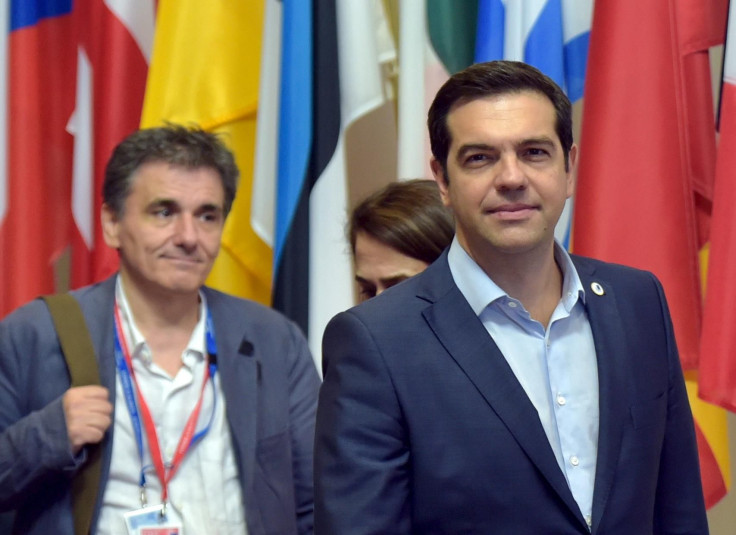Greece Accepts Austerity To Avoid A 'Grexit'

The crisis that catapulted Greece into the deep trenches of financial instability, has ultimately led left-wing Prime Minister Alexis Tsipras to toe the lines, he and his party came to power by opposing. Before the banks run completely dry, Prime Minister Tsipras conceded to the demands of his country’s creditors in return for a bail-out deal amounting to €86 billion or $96 billion.
Contemplating an unceremonious exit from the common currency zone, Greek premier Mr. Tsipras decided to allow outside supervision on the economic policies of Greece. The austere measures laid out to Athens included rise in taxes, pension cuts, permitting creditors to build base on its soil and allowing international vigilance over itself, the acceptance of which would assuage Greece of its mounting debt load. The bail out policy would enable Greece to ensure economic stability by providing short term financial growth plans as well as by lowering the debt burden that sums up to an amount more than €300 billion, to an extent.
Germany continued to pile enormous pressure on Greece to either accept the bail out terms or leave the Eurozone. The decision by Mr. Tsipras is being considered a just outcome by the other nations of the European Union. These nations are of the opinion that since Athens had been unsuccessful in restoring economic stability by itself, it was necessary that it accepts the austere measures as suggested by the European Council to gain eligibility for a third bail out in 5 years. According to Germany’s Chancellor Angela Merkel, Greece has breached trust by failing to live up to the promises it had made.
The coalition Government led by Prime Minister Alexis Tsipras is, however, deeply disappointed with the decision that they were forced to take. "Clearly the Europe of austerity has won," Greece's reform minister George Katrougalos told the BBC Radio. "Either we are going to accept these draconian measures or it is the sudden death of our economy through the continuation of the closure of the banks. So it is an agreement that is practically forced upon us".
Contact the writer on debleenasarkar26@gmail.com





















